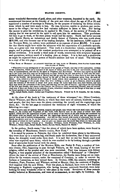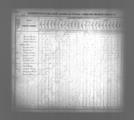George Crane Prophecy

|
|
External Link
|
|
Historical Collections of the State of New York (S. Tuttle, 1841), pg 581
|
|
|
|
|
Barber & Howe Account
|
|
John W. Barber & Henry Howe
|
|
1841
|
|
He was, however, unable to produce any excitement in the village; but very few had curiosity sufficient to listen to him. Not having the means to print his revelations, he applied to Mr. Crane, of the society of Friends, declaring that he was moved by the spirit to call upon him for assistance. This gentleman bid him to go to work, or the state prison would end his career. Smith had better success with Martin Harris, an industrious and thrifty farmer of Palmyra, who was worth about $10,000, and who became one of his leading disciples. |
|
|
|
|
|
|
Pomeroy Tucker Account
|
|
Pomeroy Tucker
|
|
1867
|
|
The manifest purpose of exhibiting these manuscripts in the manner adopted, was to test the popular credulity in regard to their assumed divine character; and also to determine, by the responses that should be elicited, as to the practicability of carrying out a concocted design of printing the "new Bible." Among others, Mr. George Crane, of the adjoining town of Macedon, a Quaker of intelligence, property, and high respectability (now deceased), was called upon by Smith with several foolscap quires of these so-called translations, for his perusal and opinion, and also for his pecuniary aid to get the work through the press. The impious story, in all its extravagance and garniture, was related to him, to which he quietly listened to the end. And then came the answer of the honest old Quaker, which was such as would have been withering to the sensibility of an ordinary impostor - though Smith was unmoved by it, for his spirit of determination was never known to yield consentingly to any adverse human influence. Sternly rebuking Smith's pretensions, and denouncing them as in a high degree blasphemous and wicked, Mr. Crane kindly but earnestly admonished him, for his own good, to desist from his criminal pursuit, warning him that persistence therein would be certain to end in his death upon the gallows, or in some equally ignominious manner. How far this friendly warning was made prophetic, by the murderous catastrophe occurring fifteen years afterward, in Illinois, is a question respectfully submitted to the reader. |
|
|
|
|
|
|
History of Wayne County
|
|
Walter H. McIntosh
|
|
1877
|
|
It was desirable to get this manuscript into print. George Crane, of Macedon, a Quaker, and a man of intelligence, was shown several quires of the "translations." His opinion was asked and his aid solicited. Mr. Crane advised Smith to give up his scheme, or ruin would result to him, and as is well known, the Friend spoke prophetically. |
|
|
|
|
|
|
Stephen Harding Account
|
|
Stephen S. Harding
|
|
Feb, 1882
|
|
In the neighborhood of Palmyra there lived another prophet, older and wiser than the Mormon prophet. This was old George Crane, who had been born and brought up a Quaker. On one occasion Smith and Cowdery had gone to the house of George, who had manifested some interest in the pretended translation. It was in the evening, and when several chapters had been read, Mr. Crane, who had been an attentive listener, in his straightforward, Quaker soberness said: 'Joseph, thy book is blasphemous; and I counsel thee to mend thy ways, or thee will come to some bad end.' George Crane lived to see the fulfilment of that prophecy, when this greatest of all modern deceivers fell out of the back window of the Carthage jail riddled with bullets. |
|
|
|
|
|
|
Fayette Lapham Interview
|
|
Fayette Lapham
|
|
May, 1870
|
|
Joseph, not being able to read the characters, made a copy of some of them, which he showed to some of the most learned men of the vicinity. All the clue he could obtain was from George Crane, who said he had seen a Pass that had been given to Luther Bradish, when traveling through the Turkish dominions; and he thought the characters resembled those of that Pass. Accordingly, Joseph went to Franklin-county, and saw Mr. Bradish, who could not read the strange characters, but advised him to return home and go into other business. |
|
|
|

|
|
External Link
|
|
Population schedules of the fifth census of the United States, 1830, New York, pg 101
|
|
|
|
|
1830 Census
|
|
1830 Census
|
|
1830
|
|
George Crane... |
|
|
|
(Note:
This census record has George Crane living in Macedon, NY in 1830.)
|
|
|
|
|